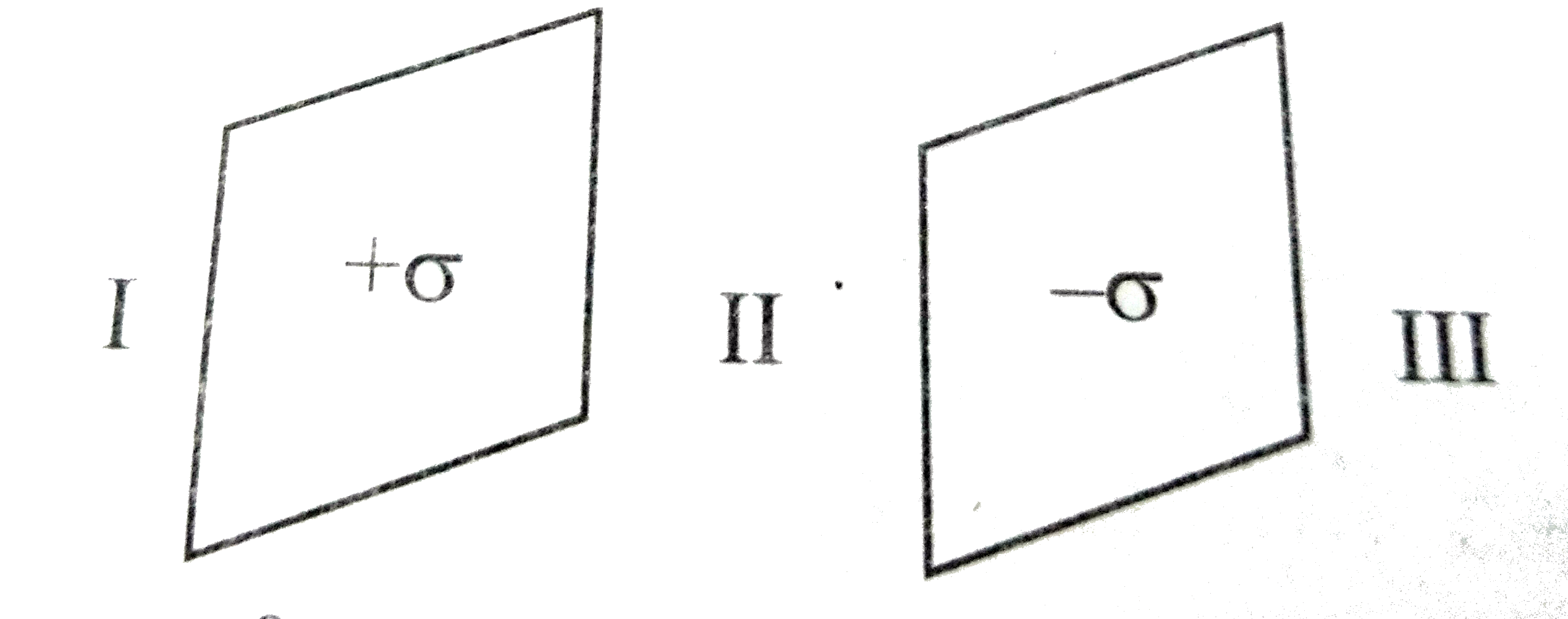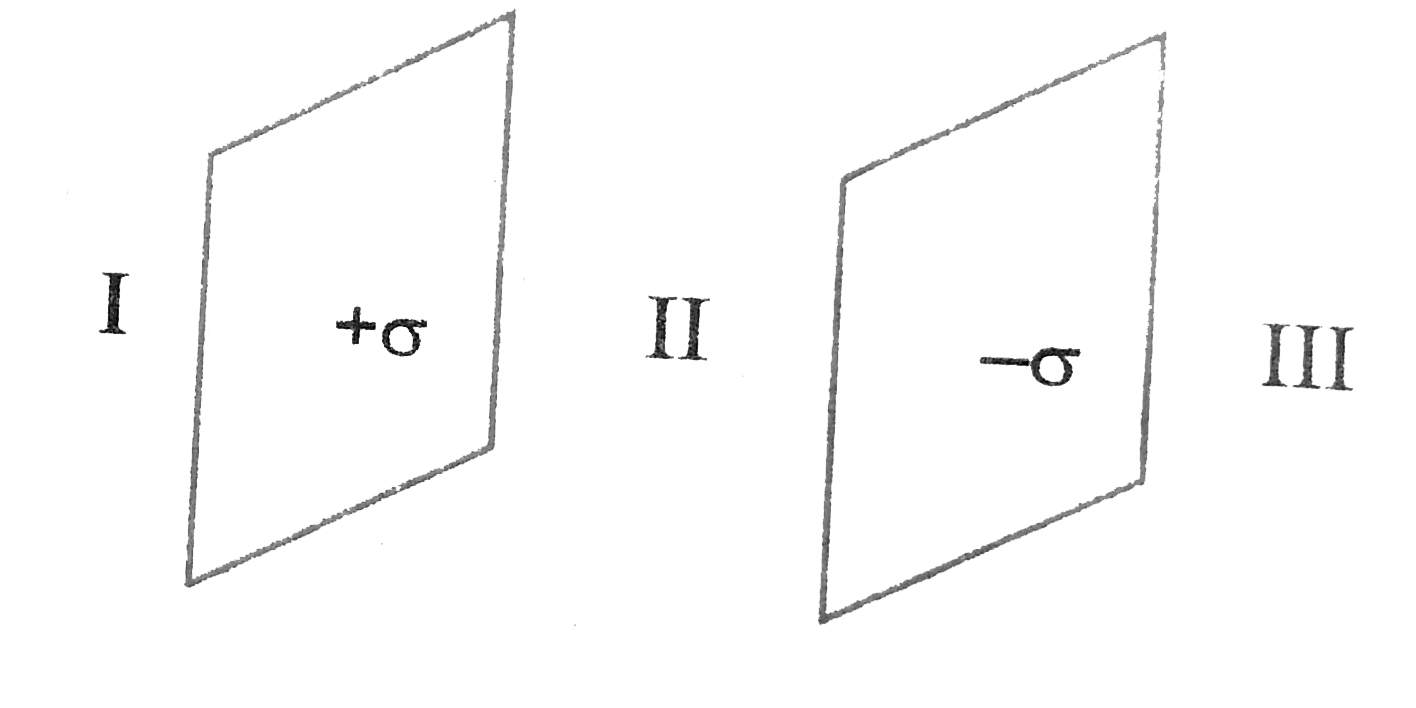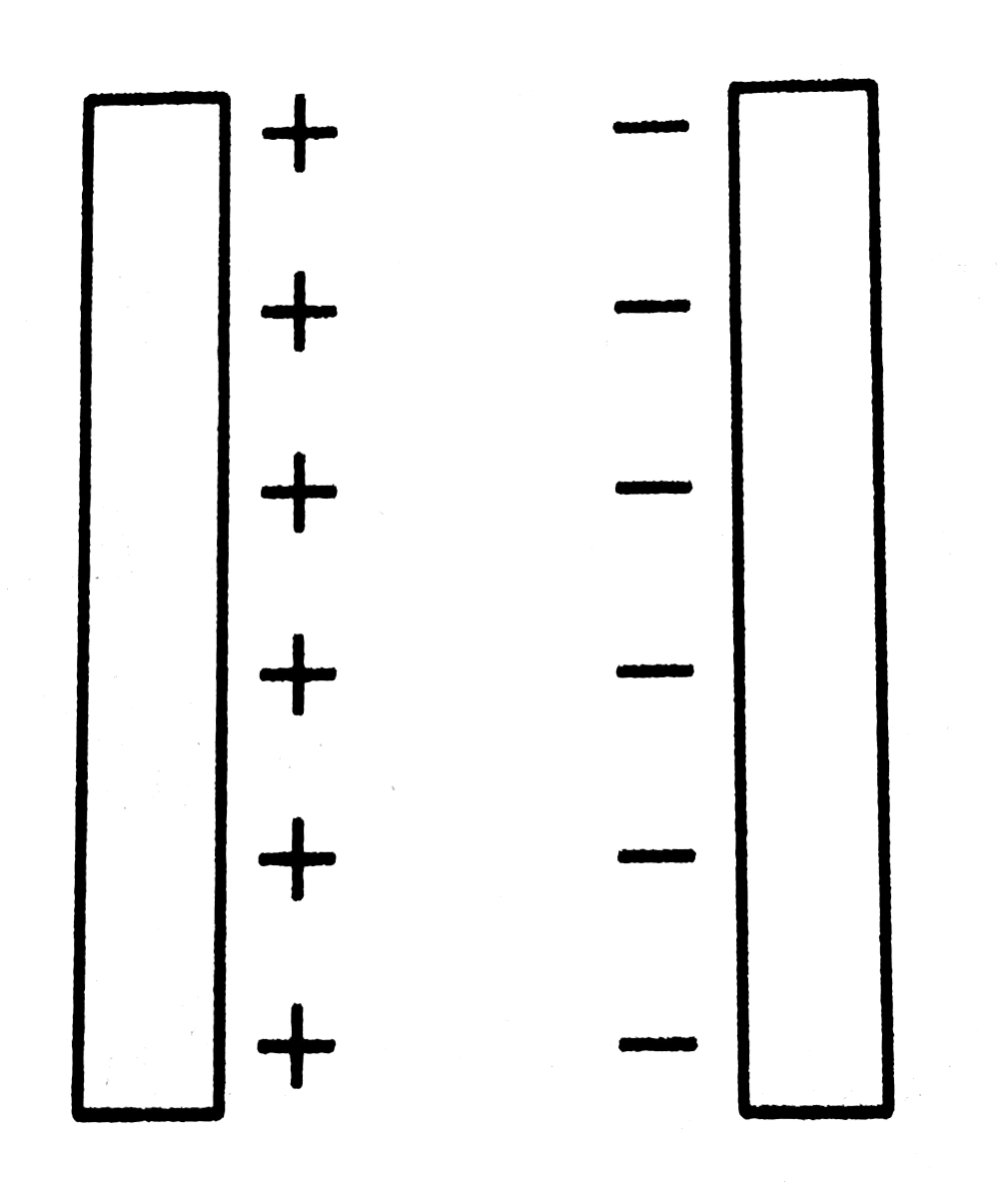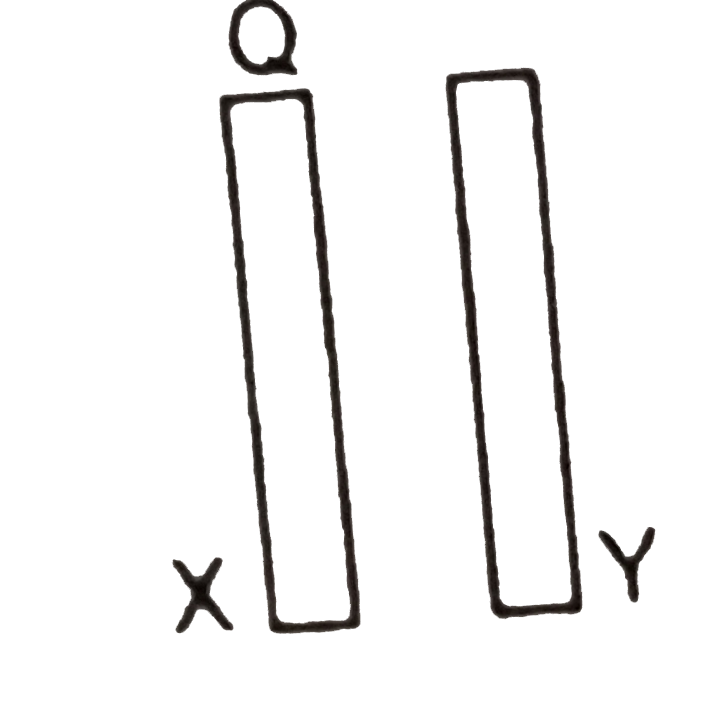Two large, thin metal plates are parallel and close to each other. On their faces, the plates have surfaces charge densities of opposite sign and of magnitude .177×10−11 coulomb per square metre. What is electric field
(i) to the left of the plates ?
(ii) to the right of the plates ?
(iii) in between the plates ?
(a) Fields due to both the plates will be equal and opposite so net field will be zero.
(b) Field outside the plates will be equal and opposite so net field will be zero
( c ) In between the plates the fields due to both the plates will be adding up so net field will be σ2ε0+σ2ε0=σε0 from positive to negative plate
∴E=σε0=1.77×10−118.85×10−12=2(N/C)
Similar Questions
Two large, thin metal plates are parallel and close to each other. On their faces, the plates have surfaces charge densities of opposite sign and of magnitude .177×10−11 coulomb per square metre. What is electric field
(i) to the left of the plates ?
(ii) to the right of the plates ?
(iii) in between the plates ?
View SolutionTwo large, thin metal plates are parallel and close to each other. On their inner faces, the plates have surface charge densities of opposite signs and of magnitude 19×10−22Cm−2.
What is E (a) to the left of the plates (b) to the right of the plates (c) between the plates ?
Here, σ=19×10−22Cm−2
View Solution
Knowledge Check
Two large, thin plates are parallel and close to each other. On their inner faces, the plates have surface charge densities of opposite signs and of magnitude 16×10−22Cm−2. The electric field between the plates is
A1.8×10−10NC−1B1.9×10−10NC−1C1.6×10−10NC−1D1.5×10−10NC−1Two large parallel conducting plates are placed close to each other ,the inner surface of the two plates have surface charge densities +σ and −σ .The outer surfaces are without charge.The electric field has a magnitude of
Aσε0 in the region between the platesBσε0 in the region outside the plates.C2σε0 in the region between the platesDzero in the region outside the plates.
Two large thin metal plates are parallel and close to each other. On their inner faces, the plates have surface charge densities of opposite signs and magnitude 27×10−22Cm−2. The electric field →E in region II in between the plates is

View SolutionTwo large, thin metal plates are parallel and close to each other , On their inner faces, the plates have surface charges densities of opposite signs and of magnitude 17.0×10−22C/m2.What is →E :
in the outer region of the first plate,
(b) in the outer region of the second plate,
(c) between the plates?
View SolutionTwo large this metal plates are parallel and close to each other. On their inner faces, the plates have surface charge densities of opposite signs and magnitude 17.0×10−22C/m2. What is →E : in the outer region of the first plate. (b) in the outer region of the secound plate, and (c) between the plates ? See Fig.

View SolutionTwo large conducting plates are placed parallel to each other nad they carry equal and opposite charges with surface density σ as shown in figure (30-E6). Find the electric field (a) at the left of the plates, (b) in between the plates and © at the right of the plates.

View SolutionTwo large conducting plates X and Y. each having large surface area A (on one side), are placed parallel to each other as shown in figure (30-E7). The plate X ia given a charge Q whereas the other is neutral. Find (a) the surface charge dendity at the inner surface of the plates X, (b) the electric field at a point to the left of the plates, (c) the electric field at a point in between the plates and (d) the electric field at a point to the right of the plates.

View SolutionTwo conducting plates X and Y, having large surface area A (on one side), are placed parallel to each other as shown in figure. The plate X is given a charge Q whereas the other is neutral. Find :
(a) The surface charge density at the inner surface of the plate X,
(b) The electric field at a point to the left of the plates,
(c) The electric field at a point in between the plates and
(d) The electric field at a point to the right of the plates.

View Solution
